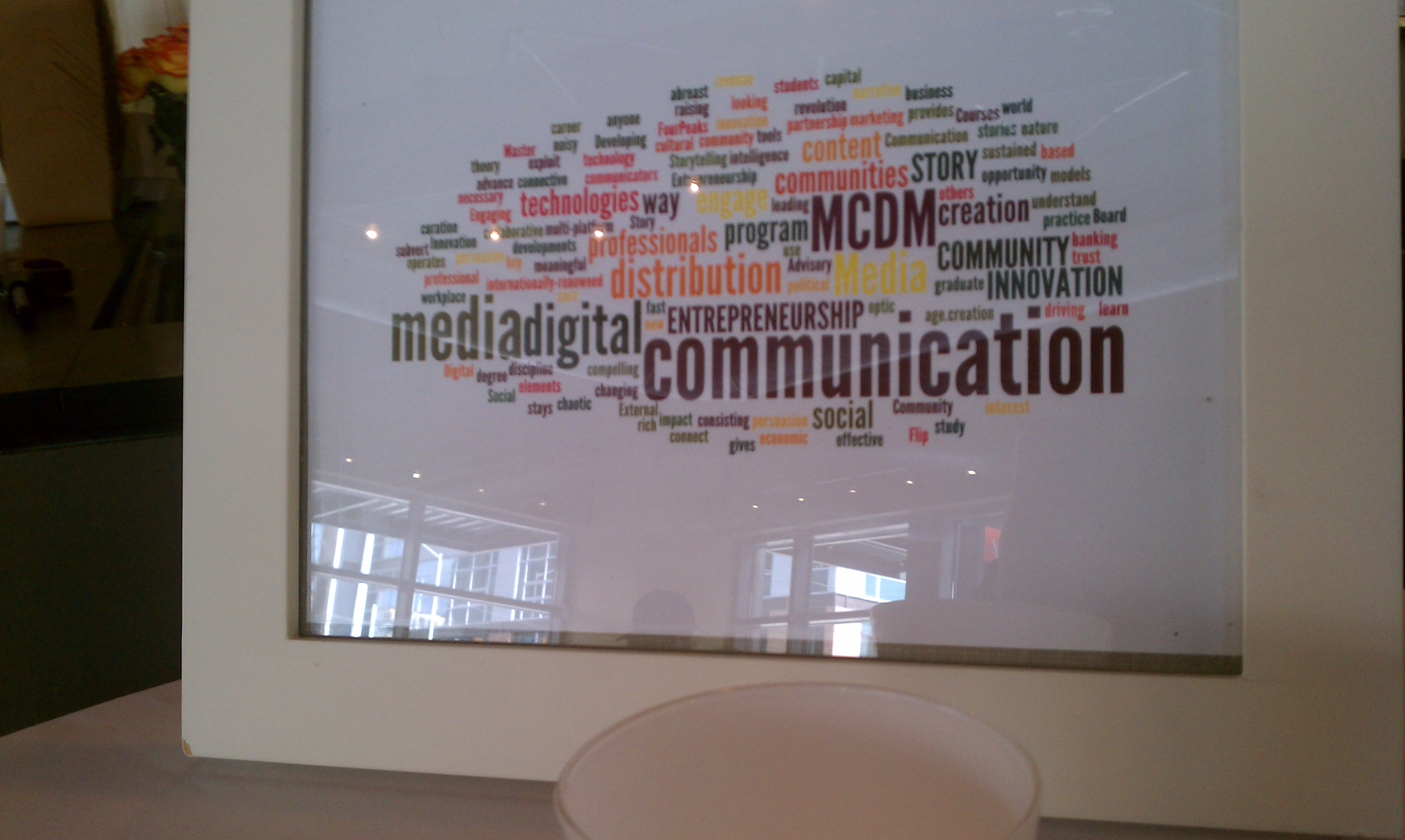 I’m assuming people around here know the #MCDM acronym by now. The Masters of Communication in Digital Media program, which spawned 10 years ago at the University of Washington, has just announced its largest graduating class (55 people), surpassing that of all other Comm department graduate students proudly deploying their cap and gown this weekend.
I’m assuming people around here know the #MCDM acronym by now. The Masters of Communication in Digital Media program, which spawned 10 years ago at the University of Washington, has just announced its largest graduating class (55 people), surpassing that of all other Comm department graduate students proudly deploying their cap and gown this weekend.
Director Hanson Hosein spoke of the program as more than just a model to address the challenges of the digital disruption, but a model for academia itself. The MCDM was the first non-state funded program at UW and is one of the few currently standing. After hosting the succesful TedxSeattle and TedxRainer events, they ramped up their public interface and introduced the Four Peaks salon speaker series (featured in more detail from Seattle Magazine). Their Flip the Media blog is well received across the web, and their Media Space television program is the most popular on UWTV, reaching 300,000 viewers per month. Hosein is testing a self-publishing model for his write-as-you-go book “Storyteller Uprising” which is available for free online, though I decided to buy myself a $10 hard copy which he slings around with him from place to place. MCDM founder Anthony Giffard has a lifelong track record of being a positive agitator, first as a white South African born journalist covering the dismantlement of apartheid, then as a faculty member of a “whites only” university who ignored resistance from his colleagues when he used an administrative loophole to hand a degree to the first student of color at Rhodes University.
Mr. Giffard shared his heartfelt story at the podium and delivered two “make the chanage” awards for innovation in digital media.
The first was received by Adam Brotman of Starbucks, who won the award for its in-store Starbucks Digital Network, a content delivery service launched last year in partnership with Yahoo. Brotman is also a member of the MCDM Advisory Board with other local industry leaders.
The second award went to Dan Savage, for his “It get’s better” project which became a textbook example of an “around the world in 80 clicks” type viral campaign done right. The famed Stranger editor and columnist was moved to take action after learning about the teen suicides of Justin Aaberg and Billy Lucas, and inspired 20,000+ others to make personal testimony videos like his to remind bullied homosexual youth to stick it out because it gets better later on. He even managed to get a bunch of well known folks like Jewel, Hillary Clinton, President Obama, Sarah Silverman, Perez Hilton, and Tim Gunn to share their own stories. (Read Geekwire’s post to learn about how his campaign turned into an ad for Google Chrome).
Besides the usual speech and applause routine, we also got to see a full showcase of student projects presented in a walkaround convention style setting. The space was actually a bit too jammed for me to interact face to face with everyone, but I caught some cool portfolios (i.e. Filiz Efe), an online news game for public radio, a “cinema in a backpack” entrepreneurship program launched by Disney in Nicaragua, and a mobile video chat system to help Korean students learn English (also won $25k for placing first at the UW business plan competition).
Keep your eyes out as MCDM continues to grow and put Seattle based digital media on notice for the rest of the world.
[original event announcement below]
Tickets and info via Eventbright page
“This June, we are hosting the inauguration of a new annual networking event to showcase the amazing work our students have done and continue to do in the MCDM. The first annual MCDM Screen Summit will be held on Friday, June 10, 5:30-7:30pm at the Portage Bay Cafe – South Lake Union location. The event will be bookended with an opening introduction and welcome by Hanson Hosein, current Director of the MCDM, and a closing speech and presentation of the Anthony C. Giffard “Make the Change” Award by Anthony Giffard, creator of the MCDM. Of course, refreshments will be served.
The bulk of the Screen Summit will be an opportunity for students to present their work on the screen of their choice, be it smart phone, tablet, or laptop. The focus will be on mingling and networking between students, alumni, MCDM Advisory Board members, faculty, and community members, with each student presenter stationed at a table (think poster session with screens instead of posters).”